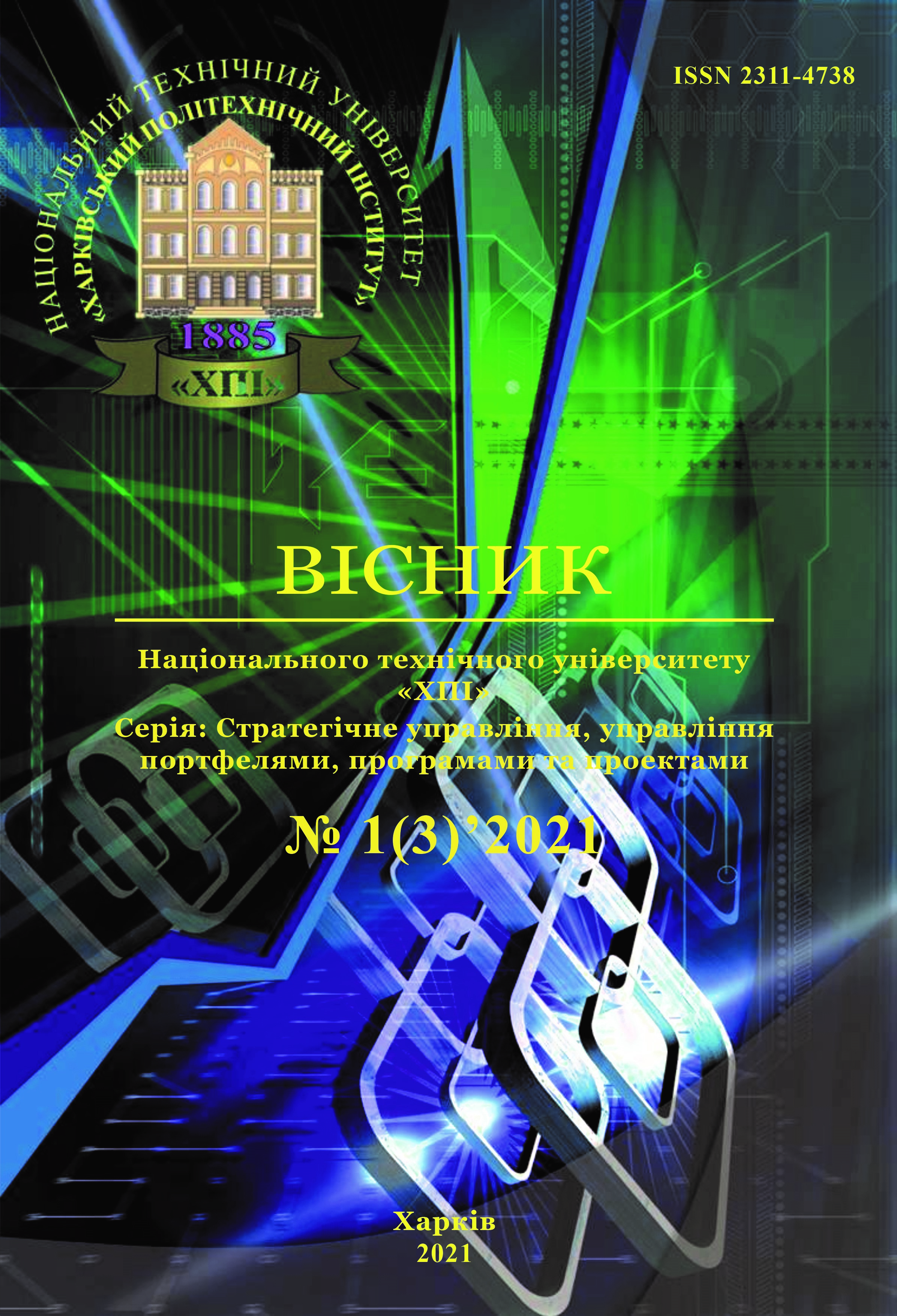THE ORETICAL AND METHODOLOGICAL FUNDAMENTALS OF RESEARCH OF ANTI-RISK STAKEHOLDERS OF PROJECT MANAGEMENT
DOI:
https://doi.org/10.20998/2413-3000.2021.3.5Keywords:
risk, stakeholders, project, anti-risk management of stakeholders, projects of the agro-industrial complexAbstract
Projects of the agro-industrial complex are implemented in conditions of high uncertainty and risk. Agricultural products provide variety and quality of food to the population. To reduce production losses and the quality of crop and livestock products, and as a consequence of reducing the economic efficiency of production, it is necessary to take measures to prevent and reduce the risks of agro-industrial projects. Given that the risks associated with stakeholders can have devastating consequences for the project, anti-risk stakeholders of projects management is critical. In connection with the widespread use of international teams for project implementation, the author proposes to take into account when managing stakeholders of projects their mentality, which can be a cause of misunderstandings and conflicts. The author also emphasizes the importance of identifying and managing the expectations of project stakeholders. The article presents the principles of stakeholders of projects management and analyzes the stakeholders of projects management processes in international project management standards, in particular P2M, ICB IPMA, PMBoK PMI and ISO 21500. The author also provides principles of project risk management in accordance with international project management standards, in particular P2M, ICB IPMA, PMBoK PMI and ISO 21500. It was found that the identification and analysis of stakeholders is the basis for understanding what risks associated with each stakeholder may arise during the project. The author emphasizes that it is impossible to analyze the risks associated with them without conducting a detailed analysis of stakeholders. And developing a stakeholder risk response plan depends largely on the characteristics of each particular stakeholder and understanding which leverage can be effective in a given stakeholder. For more effective anti-risk stakeholders of agro-industrial projects management, which would take into account the specific risks of such projects, the author recommends to develop and use tools that would take into account the characteristics of stakeholders involved in agro-industrial projects.
Published
Issue
Section
License

This work is licensed under a Creative Commons Attribution-NonCommercial-ShareAlike 4.0 International License.
Our journal abides by the Creative Commons copyright rights and permissions for open access journals.
Authors who publish with this journal agree to the following terms:
Authors hold the copyright without restrictions and grant the journal right of first publication with the work simultaneously licensed under a Creative Commons Attribution-NonCommercial-ShareAlike 4.0 International License (CC BY-NC-SA 4.0) that allows others to share the work with an acknowledgement of the work's authorship and initial publication in this journal.
Authors are able to enter into separate, additional contractual arrangements for the non-commercial and non-exclusive distribution of the journal's published version of the work (e.g., post it to an institutional repository or publish it in a book), with an acknowledgement of its initial publication in this journal.
Authors are permitted and encouraged to post their published work online (e.g., in institutional repositories or on their website) as it can lead to productive exchanges, as well as earlier and greater citation of published work.

